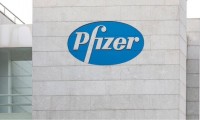-
Novo Nordisk fights back at Lilly with Wegovy combo trial against Zepbound in obesity
- Source: drugdu
- 271
- November 17, 2023
-
HHS Considers Removing J&J’s Stelara from Medicare Drug Price Negotiations
- Source: drugdu
- 115
- November 9, 2023
-
Enhanc3D Genomics expands leadership team with the appointment of Hazel Jones as Chief Operating Officer
- Source: drugdu
- 109
- November 8, 2023
-
Amid COVID slump, Pfizer turns attention to RSV launch and a potential future in obesity
- Source: drugdu
- 105
- November 2, 2023
-
Merck’s Keytruda wins coveted FDA nod around surgery for early lung cancer—with a surprise
- Source: drugdu
- 173
- October 19, 2023
-
Merck’s Keytruda hits overall survival goal in early lung cancer as FDA decision nears
- Source: drugdu
- 121
- October 12, 2023
-
FDA Rejection Is a Delay, Not a Detour for Alnylam’s Aim to Treat Heart Disorder
- Source: drugdu
- 217
- October 11, 2023
-
Will Big Pharma engage in Medicare price negotiations? AZ, BMS say they will
- Source: drugdu
- 106
- September 29, 2023
-
Ionis Posts Trial Data in Rare Disease That Position It to Finally Set Out on Its Own
- Source: drugdu
- 102
- September 28, 2023
-
Merck KGaA’s MilliporeSigma pumps €28M into 2 new mRNA production plants
- Source: drugdu
- 192
- September 28, 2023
your submission has already been received.
OK
Subscribe
Please enter a valid Email address!
Submit
The most relevant industry news & insight will be sent to you every two weeks.













